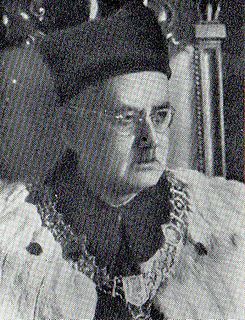 W
WKazimierz Ajdukiewicz was a Polish philosopher and logician, a prominent figure in the Lwów–Warsaw school of logic. He originated many novel ideas in semantics. Among these was categorial grammar, a highly flexible framework for the analysis of natural language syntax and (indirectly) semantics that remains a major influence on work in formal linguistics. Ajdukiewicz's fields of research were model theory and the philosophy of science.
 W
WTomek Bartoszyński is a Polish-American mathematician who works in set theory.
 W
WBartosz Brożek is a Polish philosopher and jurist whose main research interests are in philosophy of law, philosophy of science, logic and cognitive science. He is currently professor of jurisprudence at the Jagiellonian University and vice dean of the Faculty of Law and Administration, as well as a director of the Copernicus Center for Interdisciplinary Studies in Kraków. Author or co-author of more than 20 book monographs and more than 70 scientific papers. He holds PhDs in both law (2003) and philosophy (2007), habilitation in law (2008) and the title of full professor (2013).
 W
WLeon Chwistek was a Polish avant-garde painter, theoretician of modern art, literary critic, logician, philosopher and mathematician.
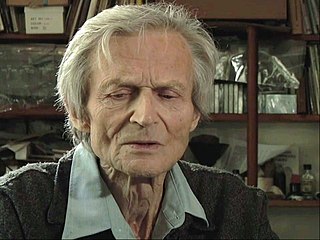 W
WAndrzej Grzegorczyk was a Polish logician, mathematician, philosopher, and ethicist noted for his work in computability, mathematical logic, and the foundations of mathematics.
 W
WJanina Hosiasson-Lindenbaum was a Polish logician and philosopher. She published some twenty research papers along with translations into Polish of three books by Bertrand Russell. The main focus of her writings was on foundational problems related to probability, induction and confirmation. She is noted especially for authoring the first printed discussion of the Raven Paradox which she credits to Carl Hempel and the probabilistic solution she outlined to it. Shot by the Gestapo in 1942, she, like her husband Adolf Lindenbaum, and many other eminent representatives of Polish logic such as Mojżesz Presburger, shared the fate of millions of Jews murdered on Polish soil by the Nazis.
 W
WStanisław Jaśkowski was a Polish logician who made important contributions to proof theory and formal semantics. He was a student of Jan Łukasiewicz and a member of the Lwów–Warsaw School of Logic. Upon his death his name was added to the Genius Wall of Fame. He was the President (rector) of the Nicolaus Copernicus University in Toruń.
 W
WTadeusz Marian Kotarbiński was a Polish philosopher, logician and ethicist.
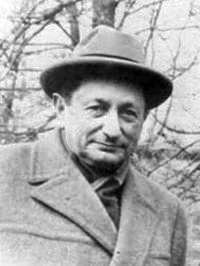 W
WKazimierz Kuratowski was a Polish mathematician and logician. He was one of the leading representatives of the Warsaw School of Mathematics.
 W
WStanisław Leśniewski was a Polish mathematician, philosopher and logician.
 W
WAdolf Lindenbaum, was a Polish-Jewish logician and mathematician best known for Lindenbaum's lemma and Lindenbaum algebras.
 W
WJerzy Łoś was a Polish mathematician, logician, economist, and philosopher. He is especially known for his work in model theory, in particular for "Łoś's theorem", which states that any first-order formula is true in an ultraproduct if and only if it is true in "most" factors. In model theory he also proved many preservation theorems, but he gave significant contributions, as well, to foundations of mathematics, Abelian group theory and universal algebra. In the 60's he turned his attention to mathematical economics, focusing mainly on production processes and dynamic decision processes.
 W
WJan Łukasiewicz was a Polish logician and philosopher best known for Polish notation and Łukasiewicz logic. He was born in Lemberg, a city in the Galician kingdom of Austria-Hungary. His work centred on philosophical logic, mathematical logic, and history of logic. He thought innovatively about traditional propositional logic, the principle of non-contradiction and the law of excluded middle. Modern work on Aristotle's logic builds on the tradition started in 1951 with the establishment by Łukasiewicz of a revolutionary paradigm. The Łukasiewicz approach was reinvigorated in the early 1970s in a series of papers by John Corcoran and Timothy Smiley—which inform modern translations of Prior Analytics by Robin Smith in 1989 and Gisela Striker in 2009. Łukasiewicz is regarded as one of the most important historians of logic.
 W
WAndrzej Mostowski was a Polish mathematician. He is perhaps best remembered for the Mostowski collapse lemma.
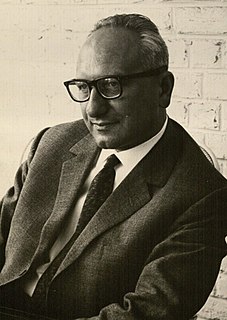 W
WChaïm Perelman was a Polish-born philosopher of law, who studied, taught, and lived most of his life in Brussels. He was among the most important argumentation theorists of the twentieth century. His chief work is the Traité de l'argumentation – la nouvelle rhétorique (1958), with Lucie Olbrechts-Tyteca, translated into English as The New Rhetoric: A Treatise on Argumentation, by John Wilkinson and Purcell Weaver (1969).
 W
WJerzy Perzanowski, was a Polish logician and ontologist, Professor of Logic to the University of Toruń (Poland) from 1992 to 2004. Founder of the Polish review Logic and Logical Philosophy, his main contributions are to the development of modal logic, paraconsistent logic and ontology.
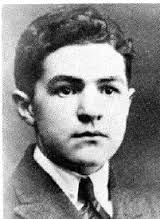 W
WMojżesz Presburger, or Prezburger, was a Polish Jewish mathematician, logician, and philosopher. He was a student of Alfred Tarski, Jan Łukasiewicz, Kazimierz Ajdukiewicz, and Kazimierz Kuratowski. He is known for, among other things, having invented Presburger arithmetic as a student in 1929 – a form of arithmetic in which one allows induction but removes multiplication.
 W
WHelena Rasiowa was a Polish mathematician. She worked in the foundations of mathematics and algebraic logic.
 W
WJerzy Słupecki (1904–1987) was a Polish mathematician and logician.
 W
WHenryk Struve (1840–1912) was a Polish philosopher. He has been called "perhaps the most remarkable person in logic in Warsaw in the 19th century". Struve taught philosophy at Warsaw University from 1862 to 1903. He wrote works in Polish, German and Russian.
 W
WAlfred Tarski, born Alfred Teitelbaum, was a Polish-American logician and mathematician. A prolific author best known for his work on model theory, metamathematics, and algebraic logic, he also contributed to abstract algebra, topology, geometry, measure theory, mathematical logic, set theory, and analytic philosophy.
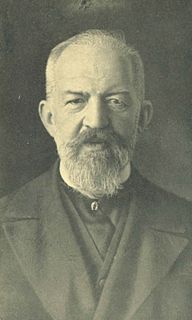 W
WKazimierz Jerzy Skrzypna-Twardowski was a Polish analytic philosopher, logician, and rector of the Lwów University. He was initially affiliated with Alexius Meinong's Graz School of object theory.